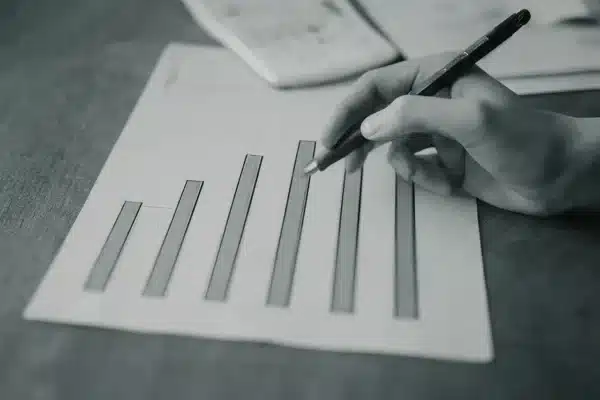Introduction to Business Debt Recovery
When your business is facing cash flow problems because of unpaid debts, it’s crucial to act swiftly and effectively. Business debt recovery isn’t just about getting what you’re owed; it’s about maintaining your financial health without damaging valuable business relationships. Essentially, it comes down to knowing the right steps to take and when. First, understand the nature of the debt and the debtor. Is this an ongoing business relationship that you value? Next, communicate. Reach out to your debtor with a reminder. Often, a simple reminder can do the trick. If that doesn’t work, consider a payment plan that makes it easier for them to pay you back. Always document your efforts. If push comes to shove, a debt collection agency or legal action might be your last resort. Remember, the goal is to recover what you’re owed while keeping your business’s reputation and relationships intact.
Understanding the Different Types of Business Debts
In business, not all debts are created equal. You’ve got your secured and unsecured debts. Secured debts are tied to assets, like a loan for a company car. If you can’t pay, they take the car back. Simple as that. Unsecured debts? They’re not tied to anything physical. Think credit cards or certain lines of credit. If you can’t pay, there’s no specific asset they can grab. However, the lender might take legal action to get their money back. Then there are priority debts. These are the ones you really don’t want to mess with. They include taxes and employee wages. The tax man doesn’t play around, and you don’t want to mess with people’s pay cheques. Lastly, we’ve got trade credit. It’s what you owe other businesses for goods or services. It’s generally based on trust and relationships (as well as lots of data in many cases!), so keeping good on these agreements is key for your business reputation. Different types of debts require different strategies. Knowing what you’re dealing with is step one in getting a handle on your business’s finances.
Preparing for Debt Recovery: Essential Steps
Before diving into the world of debt recovery, you need to get your ducks in a row. This means having a clear plan and understanding the essentials. First up, get to know your debtor. Make sure you’re familiar with who you’re dealing with. This could mean doing a bit of homework to make sure they’re not in financial trouble beyond what they owe you. Next, double-check the paperwork. This involves combing through contracts or agreements to ensure all is in order. Make sure there are no loopholes that could come back to bite. Preparation also means having a solid record of communications. Whether it’s emails, calls, or face-to-face chats, keeping track of how and when you’ve reached out is crucial. This will be your evidence if things get sticky. Lastly, know the laws. There are rules to this game, and you don’t want to be on the wrong side of them. Familiarise yourself with the legal dos and don’ts of debt recovery in your area. With these steps in mind, you’ll be in a better position to reclaim what’s yours without creating more trouble for yourself.
Effective Communication Strategies with Debtors
Talking to someone who owes you money doesn’t have to be a battle. It’s all about how you approach them. Keep your cool, stay professional, and remember that your goal is to get paid, not start a fight. Start by being clear about what they owe and by when they need to pay it. Sometimes, people genuinely forget or mix up the details. Next, listen to their side. Maybe they’re going through tough times or have their own cash flow issues. Understanding their situation can help you figure out a plan that works for both of you. Offer options like payment plans or a slightly extended deadline, if you can. It shows you’re willing to work with them, not against them. And keep everything documented. Every call, message, or agreement should be written down. This isn’t just for keeping track of things; it’s also important if the situation escalates and legal action becomes necessary. Remember, communication is key. It’s better to have a constructive conversation now than a bigger problem later.
Negotiation Tactics for Recovering Business Debts
When it comes to getting back what’s owed to your business, talking things out often works best. Start by reaching out calmly to your debtor, offering them a chance to explain their side. It’s smart to listen and show understanding, as this can open the door to finding a middle ground. Here’s the deal: be clear about what you need, but also be ready to discuss different ways they could settle their debt. Sometimes, letting them pay in installments or offering a slight discount does the trick. Remember, it’s about getting as much of your money back as possible, not winning an argument. Keep records of all communications, in case you need them down the line. Approach every discussion with patience and a goal to solve the issue without burning bridges. This way, you might just secure your payment and maintain a good business relationship.
Legal Actions in Business Debt Recovery
When you’re staring down unpaid invoices, legal action might seem like a big step, but sometimes it’s necessary to get what’s owed to you. First off, always send a formal demand letter before anything else. This letter should lay out everything: what’s owed, from when, and give a clear deadline for payment. Think of it as a firm nudge saying, “Hey, pay up.”
If that doesn’t work, you may have to step it up. Taking someone to court over unpaid debts is a step you should take with some advice from a qualified person. Small claims court is typically the go-to for smaller amounts, mainly because you won’t need a lawyer and it’s less formal. But remember, court fees and the time it eats up are real costs to consider.
For bigger amounts, or if the small claims route doesn’t pan out, civil court is where you’re heading. This is where lawyers are not just recommended; they’re pretty much required. Yes, it’s more expensive, but it’s also about protecting your business’s interests.
Lastly, know when to call it quits. Sometimes, the cost of recovery can outstrip what’s actually owed. It’s tough to swallow, but throwing good money after bad isn’t wise. Keep a cool head, think about your business’s overall health, and sometimes, cutting your losses is the smart play.
Remember, legal action for debt recovery is a tool, not step one. Try to resolve things simpler and save this for when you’ve got no other options on the table.
Implementing a Debt Recovery Plan
Getting your money back from late payers doesn’t have to be a battlefield. A good debt recovery plan is your best ally. First, know who owes you and how much. Keep records crystal clear. Next, reach out early. A friendly reminder can be all it takes. If that doesn’t work, a more formal nudge might do the trick. Offer payment options if you can. Some money coming in is better than none. Be firm but fair. No one wins if it escalates to legal action, but don’t shy away from it if needed. Remember, staying on top of debts not only keeps your cash flowing but also sends a clear message: you’re serious about business.
Utilising Professional Debt Recovery Services
When you’re hitting a wall with late payments, it’s time to think about bringing in the pros. Professional debt recovery services can be your ally in getting back what you’re owed. Here’s the deal: they know the ins and outs of debt collection laws and have the tools and tactics to pursue debtors more efficiently than you might on your own. But it’s not just about getting your money back faster; it’s sometimes also about keeping your relationships intact. These experts aim to recover debts while preserving your relationship with your clients. And let’s be honest, they’ve got a knack for negotiating that most of us don’t. The cost? It varies. Some debt recovery firms charge a flat fee, while others take a percentage of the debt collected. The key is to choose a reputable service that aligns with your business values and communication style. In the end, investing in professional debt recovery services can save you time, protect your business relationships, and, most importantly, boost your cash flow. So, when debts start to pile up, remember, calling in the pros might just be the smart move.
Tips for Preventing Future Business Debts
To dodge future business debt, plan wisely and spend smarter. First off, always have a budget. Know what you’re earning and spending. It sounds basic, but many skip this step. Stick to this budget religiously. Next, build an emergency fund. Life throws curveballs; your business is no different. Aim for six months of expenses saved up. This buffer can save you from debt when times get tough. Then, avoid unnecessary expenses. Do you really need that latest tech upgrade or lavish business dinner? Think twice before splurging. Also, keep a close eye on your invoices. Late payments can strangle your cash flow. Promptly follow up on overdue invoices and consider penalties for late payments. Lastly, revisit your business plan regularly. Markets change, and so should your strategies. Regularly updating your plan helps you stay ahead and financially stable. Stick to these pointers, and you’ll build a stronger defense against future debts.
Conclusion: Successful Debt Recovery Strategies
Wrapping it up, getting back what you’re owed boils down to a mix of persistence, communication, and strategy. Remember, each situation might need a different approach. Sometimes, a gentle reminder is all it takes. Other times, you might need the help of a debt collection agency. But, don’t forget the importance of maintaining a good relationship with your client even when chasing down debts. It’s all about finding that balance between being firm and understanding. Successful debt recovery strategies often include keeping detailed records of all debts and communications, understanding the legal framework, and knowing when to escalate matters. Always aim for a resolution that minimises loss on both sides. With the right approach, you can improve your chances of recovering debts without burning bridges.







